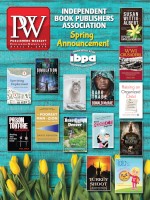Odets’s Out of the Shadows: Reimagining Gay Men’s Lives (Farrar, Straus and Giroux, June) takes an expansive, heartfelt look at gay male identity and experience.
Your first book, In the Shadow of the Epidemic: Being HIV-Negative in the Age of AIDS, was published in 1995. How do you see this new book in relation to that one?
I did that book in what was the middle of the epidemic. The assumption of it was that we probably didn’t have futures. After the advent of antiretroviral drugs, I thought, “People are surviving, and we do have futures.” And there are so many issues that I didn’t talk about in that first book—developmental issues or early life experiences, the whole concept of being gay. The reason I didn’t write this sooner was that I just thought it would be too painful. And I’ve had enough pain with the epidemic. I thought, “You’re proposing to yourself to write a book, and it’s just going to make you cry. You’re just gonna sit there and cry.” Eventually I thought, “No, what I need to do is order a case of Kleenex from Amazon and write this goddamn book.” And that was literally it.
The end of the book is deeply personal, and includes a biography of one of your lovers, Matthias Johnston. How did you arrive at that decision?
I wanted to write personally partly just because I wanted to do that for myself, and partly because I’m asking gay men to think about things that are difficult to think about, and I don’t think it’s fair to do that without also being revealing about myself.
In the book you analyze the disparate meanings of the terms gay and homosexual. What differences do you see between them, and why do those distinctions matter?
The problem with the idea of the homosexual is that it’s entirely focused on the sexual act, and that becomes the identity for a person. There are an awful lot of gay people who think that being gay means fucking men, and that’s the end of the story. Well, it’s not even the beginning of the story. It’s that we grow up somehow feeling an attachment to other men. In my case, I had two women in my life, my mother, who died when I was seven, and my brain-damaged sister, who was born very prematurely. And my emotional attachment was to my father, and I would say that was a major influence in my being gay. I have emotional feelings for men that I’m cautious about with women. That’s really the crux of the whole book, that being gay is a whole internal life and a sensibility, and it’s much broader and much richer than the conventional male identity that’s so heavily promoted.



 Volume 266
Issue 14
04/08/2019
Volume 266
Issue 14
04/08/2019





